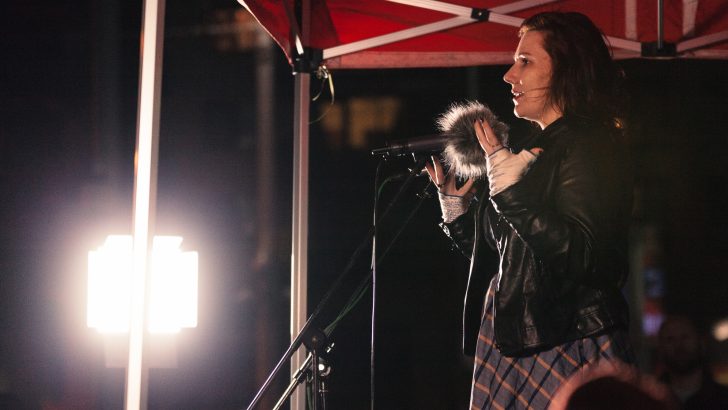Some stories make us uncomfortable. Mine is one of those stories, but I will tell it nonetheless, because I am a woman whose child was conceived in rape, and women like me will no longer be silenced.
I was travelling on business, staying in a little hotel in a college town, when it happened. It was so snowy and windy that I wouldn’t have heard his footsteps even if he had been stomping. It happened so fast. I got the door open, turned around to close it, and he was there. My first instinct wasn’t fear, just confusion. In an instant, he punched me in the face. I don’t remember being dragged from the room, but I was found in the stairwell. I don’t know why – maybe I was trying to go for help.
The rape kit came back negative for HIV, gonorrhoea, chlamydia, syphilis, herpes, and dozens of other things I’d never heard of. The following month, I was scheduled to work on a cruise ship. Struck with dysentery on day two and not getting better with antibiotics, I was taken to hospital when we docked in Colombia. Concerned about intestinal obstruction, I was given an ultrasound. And then we saw it – I was pregnant.
Back on the ship, I told the medical staff my story, and I spent the next week listening to a team of very well-meaning doctors and nurses console me with how “easy” it would be to “take care of” the child.
There were a lot of things discussed over scratchy, tearful transatlantic phone calls home with my husband that week, but, against everything I was being counselled, I felt protective of this new life, this child which had done me no harm, this child who was as innocent of the terrible crime as I was. The pressure to abort from the medical community and from well-meaning friends was always there. So many times, I was told how “simple” it would be and how quickly I could just “get on with my life” once it was over. But women’s needs after rape aren’t that simple. There is no quick-fix.
Nightmare
My precious three-year-old son was conceived during the darkest day of my life. It was the day that changed who I was forever – as a human being, as a woman, and as a wife.
During a nightmare I couldn’t awake from, a child was conceived. This child had nothing to do with the attack on my body or the scars on my soul. He had everything to do with my healing – giving me a reason to hope. I did not save my son – he saved me.
I am not raising a ‘rapist’s baby’, I am raising my baby. He is the love that I pour into him. He is the love of my husband who is raising him and siblings who play with him and the grandparents who dote on him. He is all of these things and more. As unique as a fingerprint, he has something that is just him, and he’s perfect.
Is he a reminder? He is. He’s a reminder that, as women, we can be stronger than our circumstances. He’s a reminder that beauty can come from darkness. And he’s a reminder that how we began does not determine how we end.
Some may seek to dismiss me – to dismiss all women like me, and there are so many of us. They’ll say we made our choice. But this is not just about choice, this is about the humanity of our children at their most vulnerable state. This is about protecting women and making them safe, and offering them a better answer than abortion.
Right now in Ireland, there’s a huge debate around abortion, but, as in most other countries, rape survivors are rarely heard – even though the Rape Crisis Centre says most women pregnant after rape do not have an abortion.
‘Unbroken Ireland’ wants to give voice to women like me, women impacted by pregnancy from rape, or conceived in rape themselves. Women who have been largely silenced by fear of what people will think, and how people will judge. Women who love their babies, because they are not a ‘monster’s child’ – they are our children.
Too often, our trauma is used as a campaigning tool by those who want to legalise abortion, but now we are speaking up for ourselves, because offering abortion means we have failed women, and failed to understand that only light can relieve the darkness.
In Ireland, the Eighth Amendment protects both mother and baby: it protects both innocent parties. When we were raped, we had been unable to protect ourselves. But for our children, we can and we will protect them – and we will work to change a culture where rape sentencing does often not reflect the harm and trauma caused.
We strive to end the stigma and shame we, and our children, are made to feel, because the only person who should feel shame and stigma is the rapist. The only person who should be punished is the rapist.
There are stories, like mine, which can be hard for people to hear. But we should be heard, because it is only by being heard, that we can remain unbroken.


 Jennifer Christie
Jennifer Christie 